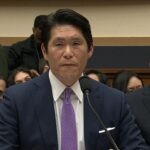Published January 26, 2023
Almost eleven years ago, as my senior year of high school drew to a close, a few of my friends convinced me to get with the times and start a Twitter account. Little did I know when I caved to their constant badgering that I was opting into something that would become a significant part of my life and my career.
About one month ago, I took a step I had dreamed of for a long time but had never managed to follow through on: I deactivated my account. When I did it, I resolved to myself that I never had to return if I didn’t want to. It felt even more freeing than I had imagined.
It was a spontaneous and impulsive decision, in some ways. But in other ways, it had been a long time coming, the culmination of frustration, distraction, and irritation that had been building for years. In 2020, I wrote about the toll that social media had taken on my attention span, and my modest efforts to fix it. Last spring, I undertook a slightly more aggressive measure: having my husband change my Twitter password without telling me the new one, so I could log in only with his help.
It should tell you something that these sound like the musings and half-measures of an addict. And all the while, thoughts of going cold turkey began to sound more and more appealing. So, finally, with the prospect of a quiet Christmas on the horizon, I quit. I wasn’t quite sure whether I was done for good or just for a little while, and the uncertainty didn’t bother me.
As it turned out, I kept my account closed for a month, from just before Christmas until the day of the March for Life last Friday. What did I learn in that time? Most important: Hardly anyone will really miss you if your social-media account vanishes. Also important: The world keeps right on spinning.
We had subscribed to the print edition of the Wall Street Journal last fall, so by the time I axed my Twitter account, I had already grown accustomed to getting most of my news from my morning reading rather than from a day of constant scrolling. So when I left Twitter, I didn’t mind losing access to the thousands of opinions I had once spent my days consuming. In fact, I relished the mental quiet and extra time. What I missed was the feeling of being a part of it all, the sense that my own contributions are integral to the media world. It turns out: They aren’t. Also, it turns out: I don’t want them to be.
My Twitter break gave me time to concentrate on my work, to read and write at length, and to reflect on future projects. It showed me how much I can do when I don’t waste time worrying about who is angry at whom over their latest 240-character missive. It also gave me great clarity about the aims of my work and how I want to spend my time. It goes against my own interests, I suppose, to admit that the opinion-sharing business and those of us in it don’t make the world go round. But it’s true. I don’t know something about everything; I hardly know something about anything. I know quite a lot about just a few things. And I began to realize that, even as it allows me to share what I do know, Twitter is mostly working against me — and against all of us.
Rather than encouraging users to learn more and think deeply to make and consume meaningful contributions, Twitter encourages endless, mindless scrolling and constant, thoughtless sharing. It honors those who are quick to speak and disadvantages those who would stop to think. It gives instant feedback for a couple of sentences and crowds out time for reading or writing books and articles. It incentivizes tribalism and rewards superficiality. It places a premium on snap judgments and cutting remarks, leaving little room for compassion or empathy.
Is Twitter all bad? Of course not. I reactivated my account for a reason, and it wasn’t because I missed using it. Twitter has been a significant part of my career, enabling me to build a reputation as someone who knows a few things really well, the kind of writer who could quit Twitter and still know that people read my work and take it seriously. I’m grateful that the platform allows me to share with people who care — and, for that matter, with hate followers who might one day come around.
But as with all digital technology, those benefits come at a cost, particularly when we refuse to take seriously how difficult it is to keep the good while minimizing the bad. The addictive power of screens is powerful precisely because we usually don’t notice it until it’s too late. It’s hard to reckon the costs of Twitter for us as individuals and for our discourse when we’re convinced we need it and, more than that, when we fear we couldn’t leave even if we wanted to. Will I ever quit Twitter for good? Probably not. But it sure is nice to know that I can.
Alexandra DeSanctis is a fellow at the Ethics and Public Policy Center and a contributing writer at National Review
EPPC Fellow Alexandra DeSanctis writes on culture and family issues, with a particular focus on abortion policy and pro-life advocacy, as a member of the Life and Family Initiative.












